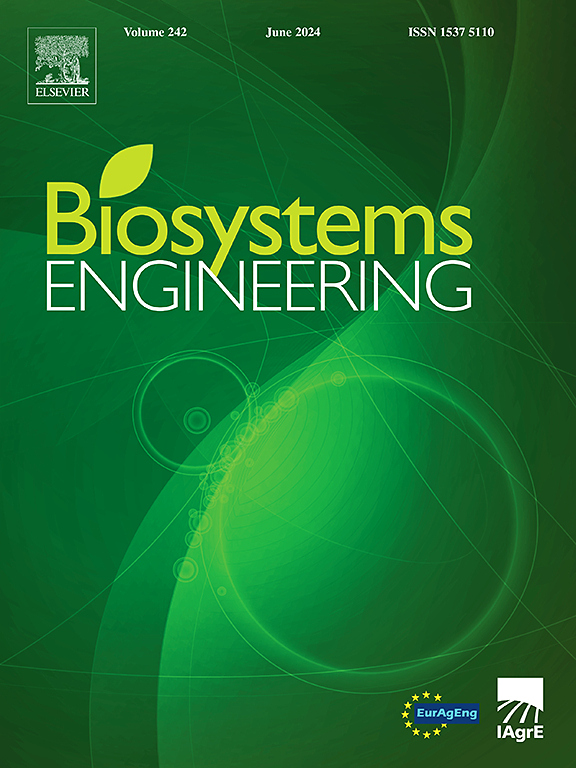生长不确定性下温室作物全周期最优温度设定值控制
IF 5.3
1区 农林科学
Q1 AGRICULTURAL ENGINEERING
引用次数: 0
摘要
本文提出通过解决随机干扰下期望净收入最优的控制问题来规划整个生长季节的作物生产。考虑了仅在收获时支付的生产规格(即仅在收获时获得奖励)和对收获作物的精确重量限制。在荷兰气候条件下,对温室莴苣生产进行了案例研究。计算了3天不同天气、3种不同能源成本值的最优控制策略,并在不同收获重量要求、状态动态不确定性水平、初始作物重量和生产周期开始时间下进行了不确定性分析。最优控制器平衡每日能源成本和预期最大收获收益,并使用状态和时间相关的反馈来适应不确定性下的行为。不以不确定性为基础的控制政策的效果要差得多,净收入会减少15%。没有动态反馈的控制政策甚至导致净收入损失19%。敏感性分析表明,这些性能差异在不确定性水平、收获重量约束、与最佳开始日期的偏差以及初始作物重量的偏差方面持续存在较大范围。综上所述,动态反馈和不确定性建模可以显著提高温室气候控制设计的经济效益。本文章由计算机程序翻译,如有差异,请以英文原文为准。
Optimal temperature setpoint control for a complete greenhouse crop cycle under growth uncertainty
This paper proposes to plan crop production over a complete growing season, by solving a control problem that optimises expected net revenue under stochastic disturbances. Production specifications with payouts only at harvest time (i.e. a reward only at harvest time) and under precise weight constraints on the harvested crop were considered. A case study was conducted for lettuce production in a greenhouse under Dutch weather conditions. Optimal control policies were calculated for weather measured on three different days, three different values for energy costs, and an uncertainty analysis was carried out under varying harvest weight requirements, state dynamics uncertainty levels, initial crop weight and starting time of the production round. The optimal controller balances daily energy costs and the expected maximum harvest revenues and uses state- and time-dependent feedback to adapt its actions under uncertainty. A control policy that is not based on uncertainty, is shown to perform substantially worse, with 15% less net revenues. A control policy without dynamic feedback even lead to a loss of 19% in net revenues. The sensitivity analysis showed that these performance differences persist over large ranges in uncertainty level, harvest weight constraints, deviations from the optimal starting day, and deviations in initial crop weight. Altogether, the results indicate that dynamic feedback, and uncertainty modelling can substantially improve economic outcomes in greenhouse climate control design.
求助全文
通过发布文献求助,成功后即可免费获取论文全文。
去求助
来源期刊

Biosystems Engineering
农林科学-农业工程
CiteScore
10.60
自引率
7.80%
发文量
239
审稿时长
53 days
期刊介绍:
Biosystems Engineering publishes research in engineering and the physical sciences that represent advances in understanding or modelling of the performance of biological systems for sustainable developments in land use and the environment, agriculture and amenity, bioproduction processes and the food chain. The subject matter of the journal reflects the wide range and interdisciplinary nature of research in engineering for biological systems.
 求助内容:
求助内容: 应助结果提醒方式:
应助结果提醒方式:


